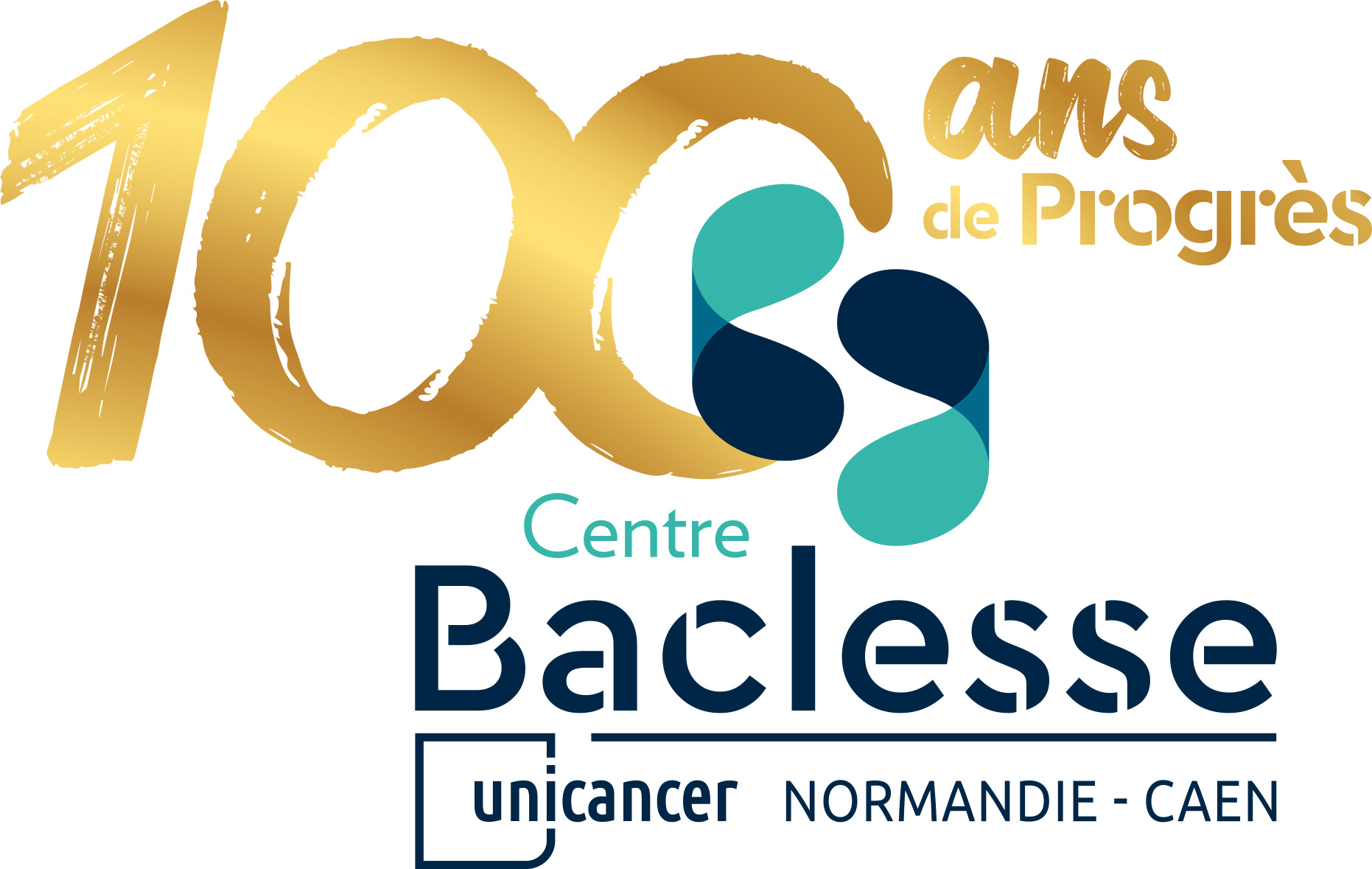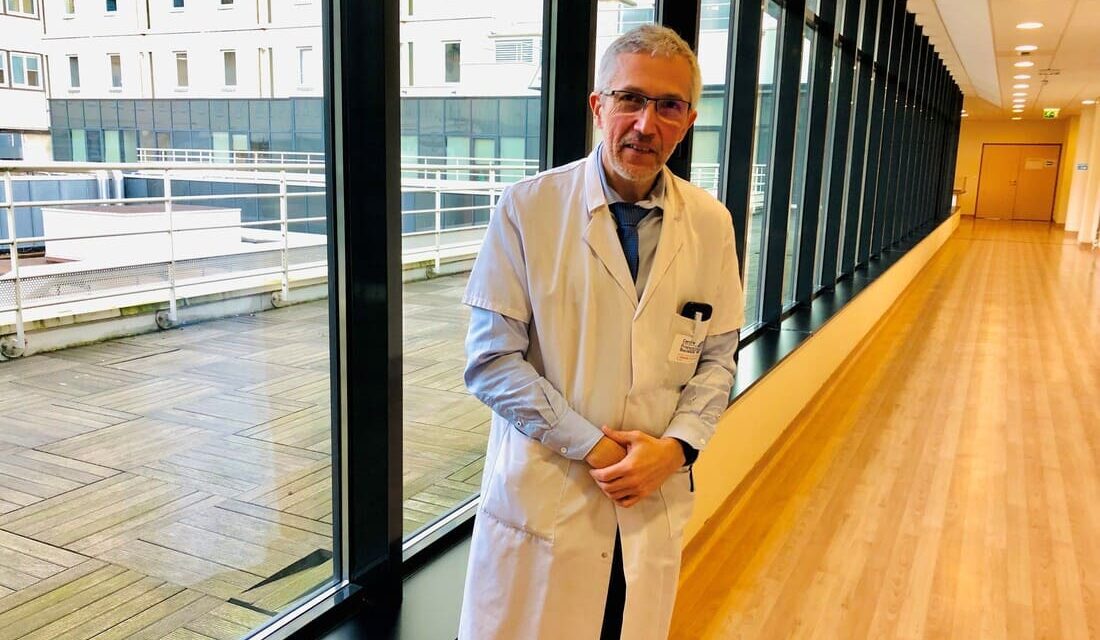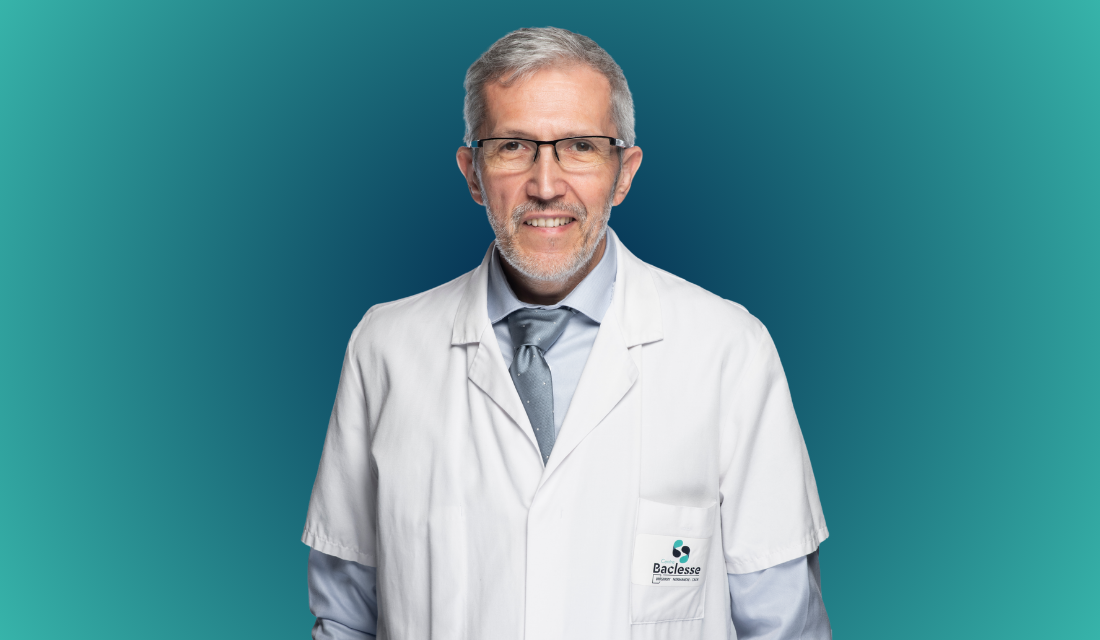A university professor, specialising in breast and gynaecological cancers, Roman Rouzier has joined the medical team at the François Baclesse Comprehensive Cancer Centre. He is in charge of the surgery department and is the establishment’s scientific director since February 2022.
Prof. Roman Rouzier’s career
Professor Rouzier started his career as a gynaecological surgeon in Paris. He then spent 2 years in the United States, at the MD Anderson Cancer Center (University of Texas), the world’s leading hospital for cancer care (according to the Newsweek ranking). Appointed University Professor – Hospital Practitioner (PU-HP) in 2008 when working at the Tenon Hospital in Paris, he became deputy director of the Institut Curie in Saint-Cloud, where he coordinated the establishment’s medical, scientific and architectural project. Concurrent to his professional activity, he studied management and graduated as valedictorian of an ‘executive master’ at the X Ecole Poytechnique in 2018. He recently joined the teams at Baclesse as head of the surgery department and scientific director.
Head of the surgery department and scientific director at the François Baclesse Comprehensive Cancer Centre.
At Baclesse, Prof. Rouzier is involved, in particular, in the drafting of the 2023-2027 scientific project. ‘It is fascinating work for it takes stock of our existing strengths,’ he explains. Care paths for patients that provide for better integration of local stakeholders, i.e. access to research and innovation, and naturally including the Centre’s added value, are among the obvious ideas for the forthcoming scientific project. The overall aim is to generate increasingly democratic healthcare, via a vision of research that stretches from the laboratory to the patient’s bedside.
‘We are here to conduct research; it is among our 3 key missions: healthcare, teaching, research,’ he points out. ‘We boast several assets in terms of research, at least two of which I am delighted to mention: the ORGAPRED platform and proton therapy,’ he continues. The vocation of the University of Caen-Normandy’s ORGAPRED platform, hosted by the François Baclesse Comprehensive Cancer Centre’s U1086 ANTICIPE Inserm research unit, is to test treatment on laboratory-generated microtumours. Meanwhile, proton therapy, administered at the Normandy Hadrontherapy Cyclhad site, is an innovative radiotherapy procedure that improves treatment efficacy, whilst limiting associated toxicity.
Prof. Rouzier’s ambitions as scientific director are to continue to contribute towards 5 major projects:
- Quality of life, during and after cancer, commonly referred to as, ‘survivorship’: ‘Through work conducted by Prof. Florence Joly on quality of life, we are already identified as one of the major stakeholders and we must pursue such research.’
- External radiotherapy and vectorised internal radiotherapy: The latter enables tumour targets to be identified, in order to perform highly specific imaging, or to administer a therapeutic agent.
- Oncogenetics: The cancer genetics laboratory at the François Baclesse Comprehensive Cancer Centre is France’s leading laboratory in the molecular diagnosis of genetic predisposition to breast and ovarian cancer. ‘We must maintain this position and integrate liquid biopsies.’
- Epidemiology: ‘This research in the field of public health is part of our prevention and screening effort, but must also become interventional, in other words, it must modify patient implication and, consequently, their disease history.’
- Academic and pharmaceutical research in partnership with industry: ‘We must be leaders thanks to our key structures and offer patients access to innovation.’
Patients are at the heart of our preoccupations. ‘The Centre’s very DNA is to place the human factor, research and access to innovation around our patients,’ he concludes.




